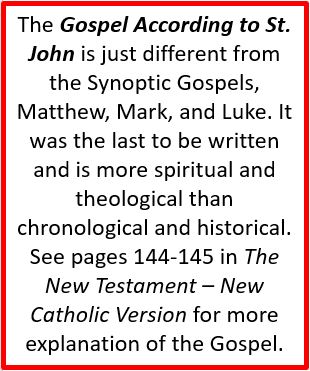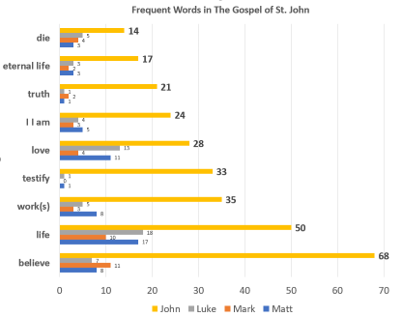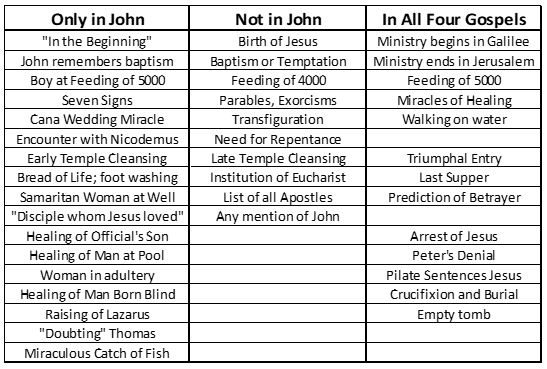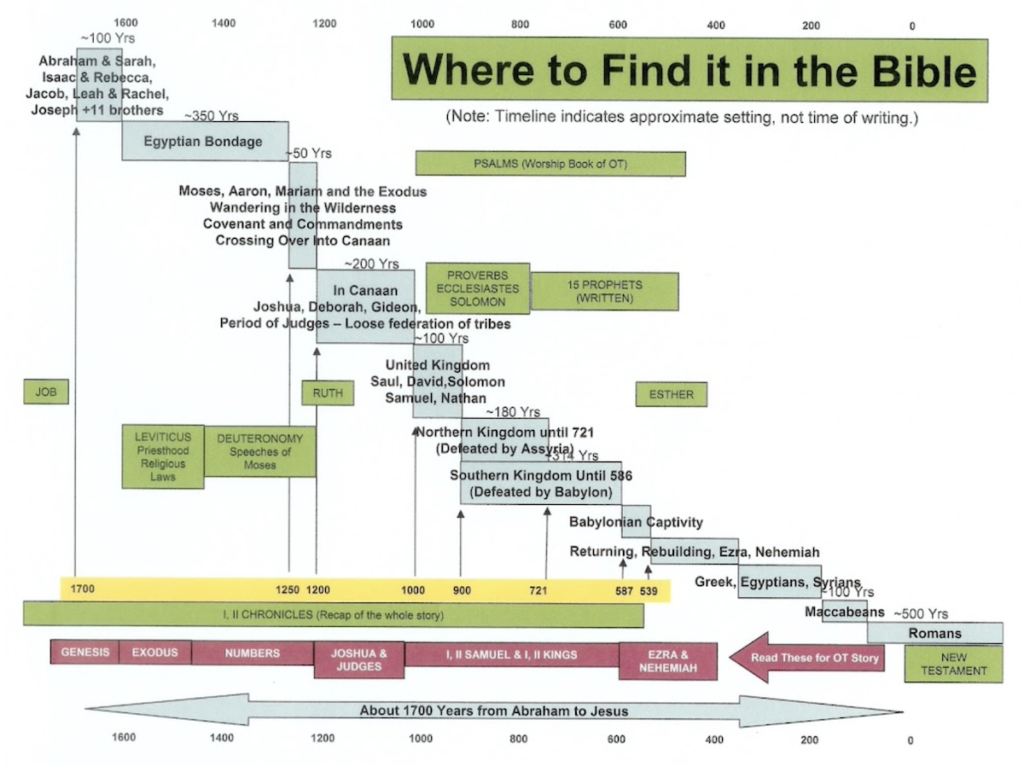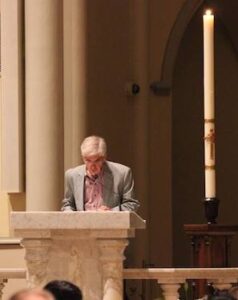I’m not very skilled at digging deeply into Sacred Scripture, finding new meaning and writing paragraphs about a verse or two. But I love looking at the Bible from a 50,000 foot view, so to speak, and detecting patterns, themes, characteristics, and differences. So, here are thoughts and observations about the Gospel According to St. John which St. Augustine apparently Tweeted was “shallow enough for a baby to wade and deep enough for an elephant to swim.”
Mark is the earliest and shortest and has a wonderful beginning: “The beginning of the gospel of Jesus Christ.” So, if we had any doubt about what the Gospel of Jesus is, Mark makes it clear. Mark doesn’t, however, say anything about the birth or ancestry of Jesus. He just gets right to what happened.
Matthew, generally viewed as a Gospel targeted at a Jewish community, has a beautiful birth story with wise men and flight to Egypt and traces Jesus’s ancestry back to the patriarch Abraham, who begat Isaac, who begat Jacob, who begat the heads of the 12 tribes of Israel.
And Luke, generally viewed as targeted to a community of Gentiles, relates the Annunciation, the Visitation, the Nativity, the Benedictus, and traces the ancestry all the way back to Adam, father of all.
The writer of John had more time to think about the theology of Jesus and a Trinitarian God and copied the first words of Genesis, placing Jesus “In the beginning,” with God, and the same as God, at the creation.
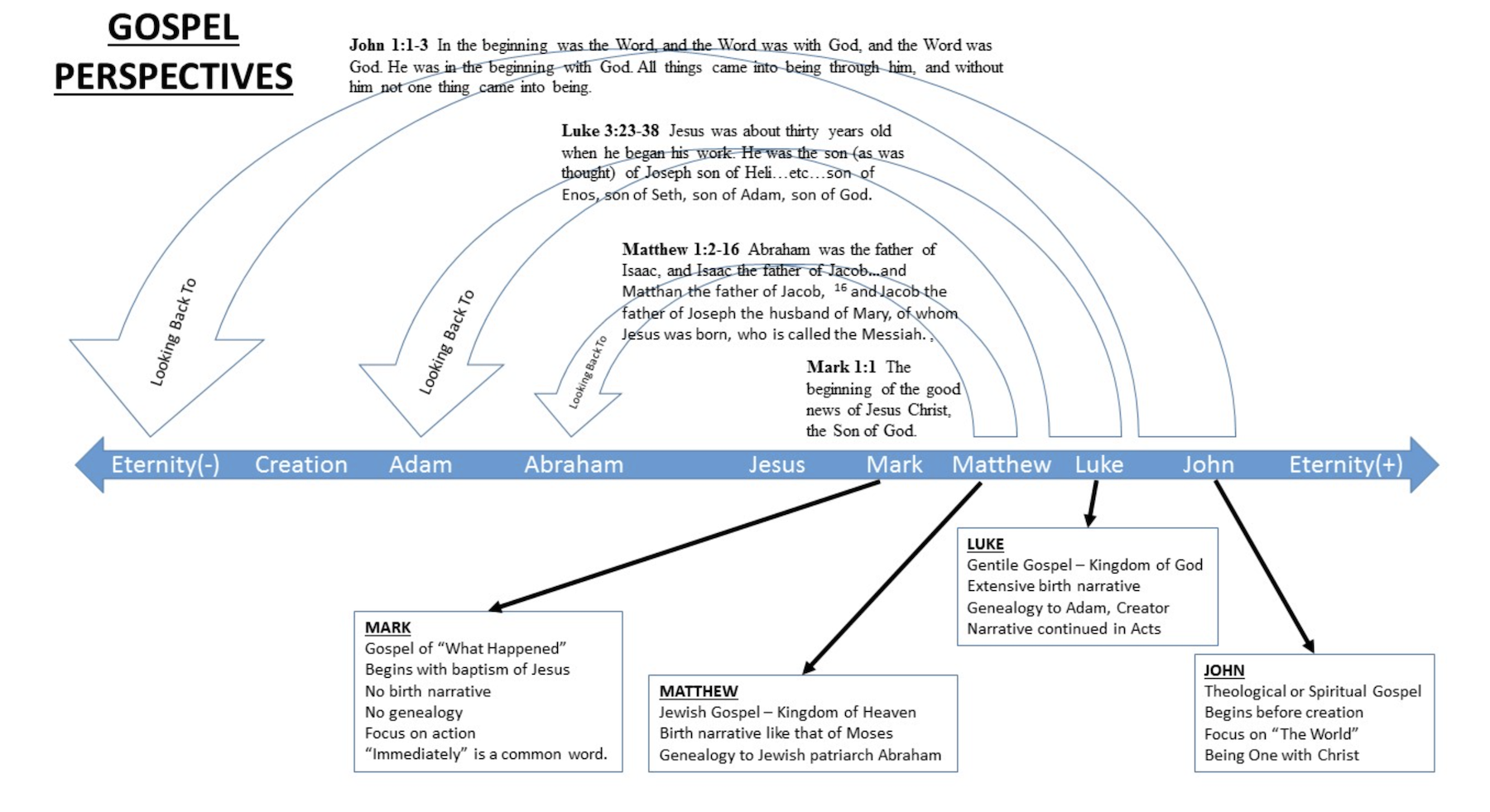
Word counting is a great way to identify major themes in books of the Bible, and it is truly wonderful if one has software such as Bible Works which will do all the counting. Here are some important words in John, in each case having as many or more appearances in that Gospel than in the other three combined. A good way to explore use of these words is to use an online searchable Bible to find the uses of the words and meditate on them.
The “I I am” (which looks like 11 AM) deserves special consideration because the double emphasis, use of the pronoun “ego” which translates “I” even with the inflected verb (eimi) which translates alone as “I am” is understood by scholars and theologians as a reference to God identifying himself, at the burning bush, to Moses as “I AM.” (Exodus 3:13-14) Every religious Jew hearing that phrase from Jesus as in, “I AM the way, the truth and the life,” heard it as a claim to divinity. Believers bowed in awe and unbelievers charged blasphemy.
It is worthy of note also that the word usually translated as testify or bear witness is the Greek word from which we get the English martyr. For the early Christians, bearing witness as Stephen did often resulted in martyrdom.
A review of the use of “believe” can increase understanding of the fact that belief in john goes far beyond mental or intellectual belief to “believing in” or conversion or a change in direction of ones life. Here is an easy link to the list of 83 occurrences of “believe” in John.
Jesus and his followers spent a lot of time walking an area of around 900 square miles. In the Gospel of John, that includes three trips between Galilee and Jerusalem. No wonder Jesus instructed them, in Luke’s Gospel, to not carry anything with them. And no wonder that the writer of John declared that Jesus did many other signs not recorded in the Gospel.
The three trips “up to Jerusalem” are quite different from the single long journey in the other Gospels and are the basis for Church teaching that His ministry was three years. Note the two Bethany’s, one across the Jordan where John baptized Jesus, and one a suburb of Jerusalem.
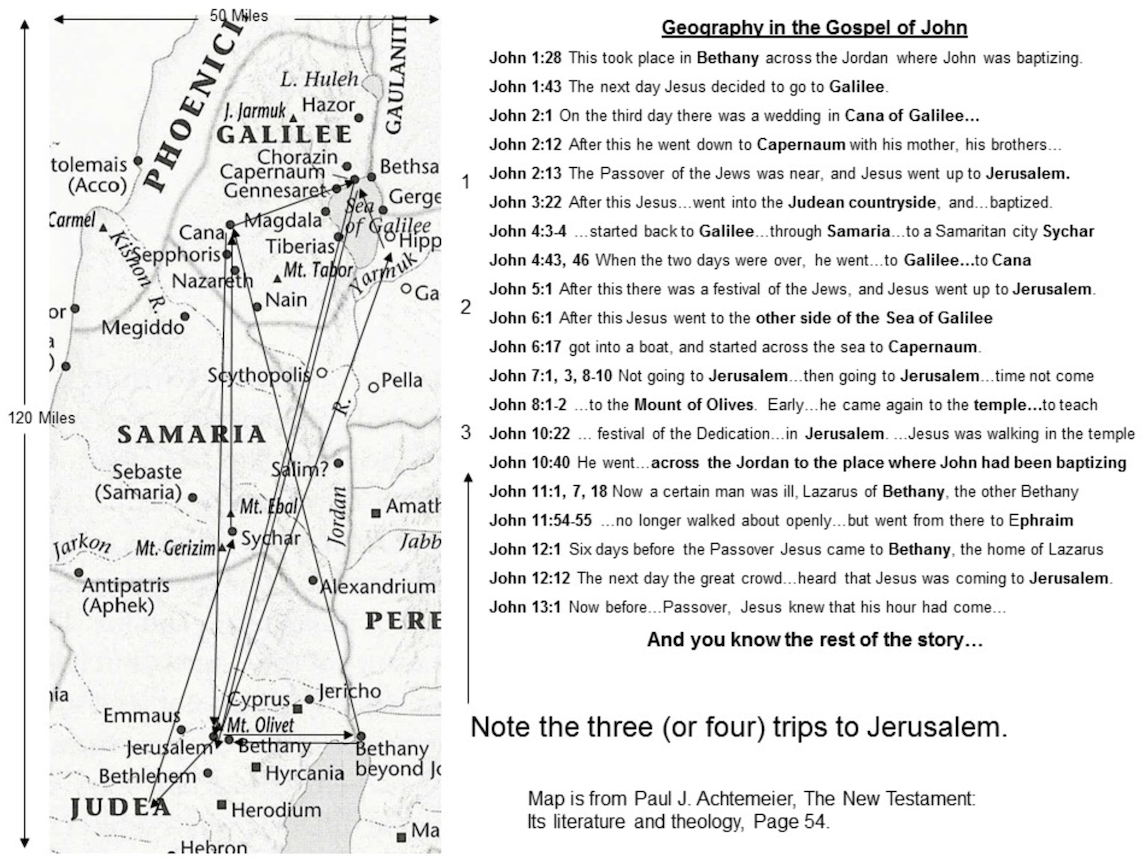
John – A Few Key Verses
1:1 In the beginning was the Word, and the Word was with God, and the Word was God.
1:14 And the Word became flesh and made his dwelling among us, and we saw his glory, the glory as of the Father’s only Son, full of grace and truth.
1:29 The next day he saw Jesus coming toward him and said, “Behold, the Lamb of God, who takes away the sin of the world.
2:5 His mother said to the servers, “Do whatever he tells you.”
2:11 Jesus did this as the beginning of his signs in Cana in Galilee and so revealed his glory, and his disciples began to believe in him.
2:19 Jesus answered and said to them, “Destroy this temple and in three days I will raise it up.”
4:13-14 Jesus answered and said to her, “Everyone who drinks this water will be thirsty again; 14 but whoever drinks the water I shall give will never thirst; the water I shall give will become in him a spring of water welling up to eternal life.”
5:24 Amen, amen, I say to you, whoever hears my word and believes in the one who sent me has eternal life and will not come to condemnation, but has passed from death to life.
6:35 Jesus said to them, “I am the bread of life; whoever comes to me will never hunger, and whoever believes in me will never thirst.
6:56 Whoever eats my flesh and drinks my blood remains in me and I in him.
8:12 Jesus spoke to them again, saying, “I am the light of the world. Whoever follows me will not walk in darkness, but will have the light of life.”
10:14 I am the good shepherd, and I know mine and mine know me,
12:44-45 Jesus cried out and said, “Whoever believes in me believes not only in me but also in the one who sent me, 45 and whoever sees me sees the one who sent me.
14:6 Jesus said to him, “I am the way and the truth and the life. No one comes to the Father except through me.
15:1 “I am the true vine, and my Father is the vine grower.
17:20-22 “I pray not only for them, but also for those who will believe in me through their word, 21 so that they may all be one, as you, Father, are in me and I in you, that they also may be in us, that the world may believe that you sent me. And I have given them the glory you gave me, so that they may be one, as we are one,
19:26-27 When Jesus saw his mother and the disciple there whom he loved, he said to his mother, “Woman, behold, your son.” Then he said to the disciple, “Behold, your mother.” And from that hour the disciple took her into his home.
20:30-31 Now Jesus did many other signs in the presence of (his) disciples that are not written in this book. But these are written that you may (come to) believe that Jesus is the Messiah, the Son of God, and that through this belief you may have life in his name.
Read the Gospel According to St. John at one sitting. It won’t take that long (without all the footnotes and references.)
